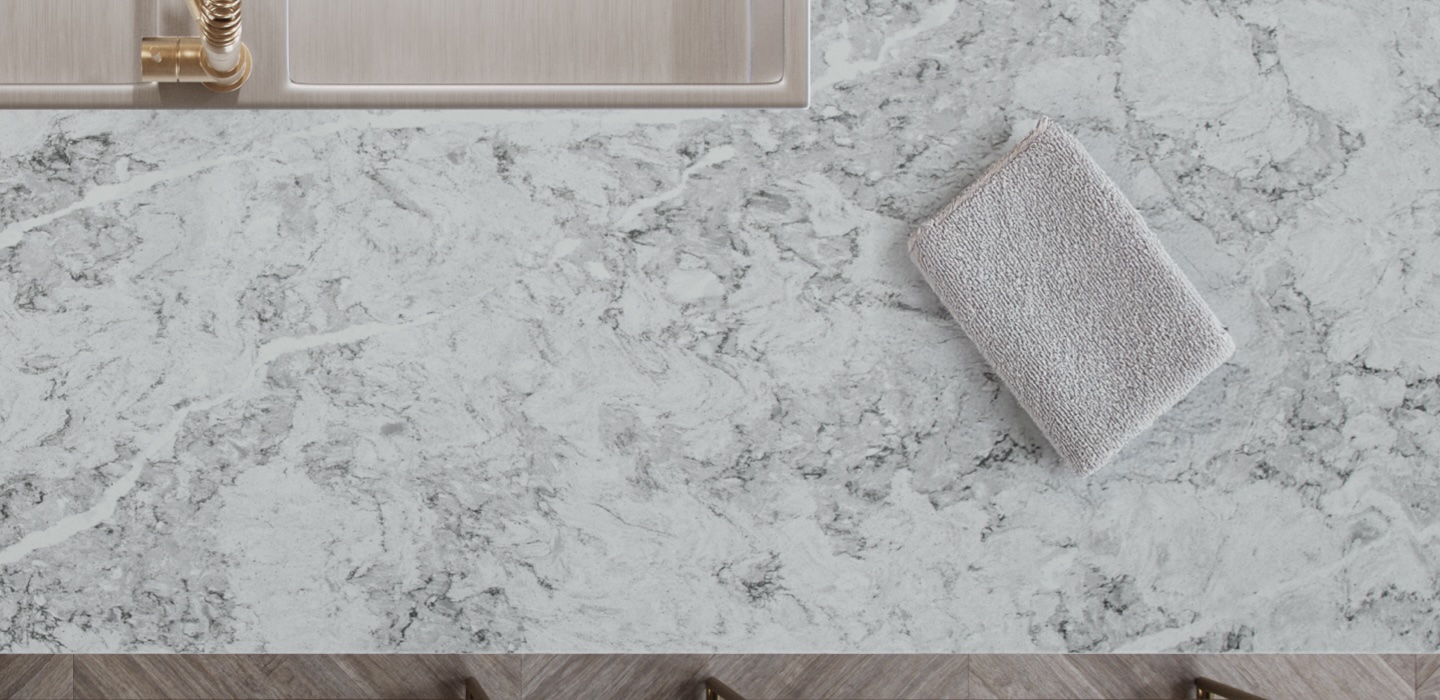Guide to Cleaning Stone Surfaces

SHARE
Natural stone surfaces, whether quartzite, marble, or quartz, are lasting additions to any space. Each stone type offers a unique aesthetic and durability, but proper maintenance is essential to keeping these surfaces looking pristine. Understanding the right cleaning techniques and products can help you preserve the beauty of your installed stone while avoiding damage.
Natural Stone: Quartzite & Granite
Natural Stone: Marble
Marble surfaces require a delicate touch when it comes to cleaning. A gentle soap and water solution is usually all that’s needed to keep marble clean. Mix a small amount of pH-neutral dish soap with water, then dunk a soft microfiber cloth into the solution. Wring it out until it’s just damp and gently wipe the marble surface. Rinse the cloth well and wipe the surface with clean water to remove any remaining soap. Lastly, dry the surface with a soft towel to prevent watermarks.
When tackling stains on marble, speed is key. For most stains, a blend of baking soda and water can be effective. Spread the mixture over the stain, cover it with plastic wrap and let it sit for 24 to 48 hours. Once the plastic wrap is removed, wipe off the mixture and clean the marble as usual. For regular dusting, use a soft microfiber cloth or soft-bristle brush. Pro Tip: A soft-head toothbrush can help get dirt and grit out of corners. You may also consider re-sealing your marble surfaces with a high quality sealer every 6-12 months, depending on the overall traffic and usage in the space.
Things to Avoid: Vinegar, lemon juice, coarse steel wool and acidic cleaners + household products like bleach or cooking oils. These substances can cause irreversible damage to the stone, dulling its finish or causing etching. It’s also important to refrain from using hard bristles, brushes or scouring pads, which can scratch marble surfaces.
Quartz
Quartz surfaces are known for being low maintenance, but they do require some special care to keep them in top condition. Similar to granite, quartz can be cleaned with warm soapy water and a soft cloth. Ensure the cloth is only slightly damp to avoid leaving excess water on the surface. For routine cleaning, an all-purpose cleaner or mild detergent is effective, as long as it doesn’t contain harsh chemicals. Spread the cleaner over the surface and use a microfiber cloth to wipe away any mess. Follow up with a dry microfiber cloth to ensure the surface is completely dry.
Things to Avoid: Abrasive cleaners, scrubbers, steel wool. These can scratch the surface. Similarly, bleach, Clorox, Windex, degreasers, oven cleaners, scouring pads and other alkaline cleaning solutions or disinfecting formulas with high pH levels should be avoided. These products can dull the finish or cause other forms of damage to the stone.
If you are overwhelmed with particularly tricky stains or wear, contacting your local fabricator or natural stone and quartz surfacing repair professional is a great next step. These experts have in-depth knowledge of best practices for maintaining stone surfaces and can provide specialized advice on how to preserve the quality and appearance of your particular stone.
By following these guidelines, you can ensure that your natural stone and quartz surfaces remain as dazzling as the day they were installed. Each type of stone—whether granite, quartzite, marble or quartz —has its specific needs. By using the right cleaning techniques and avoiding harmful products, you’ll preserve the beauty and durability of your stone for years to come.